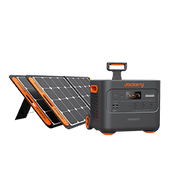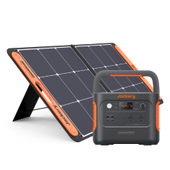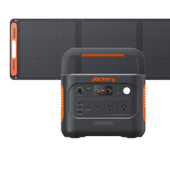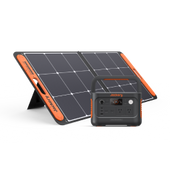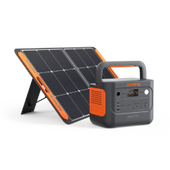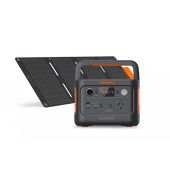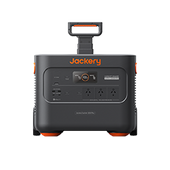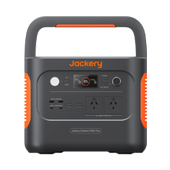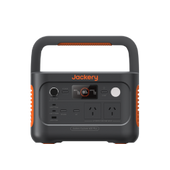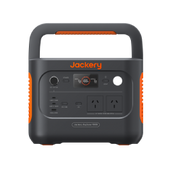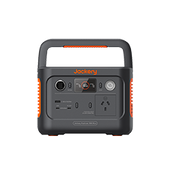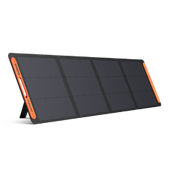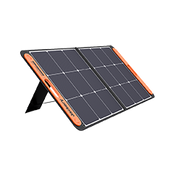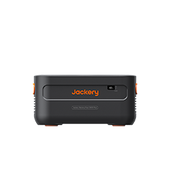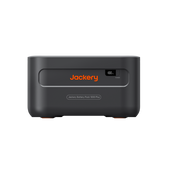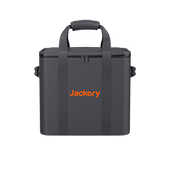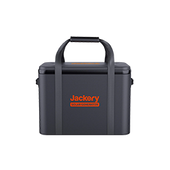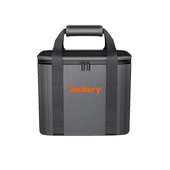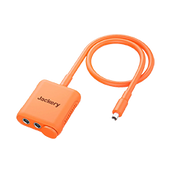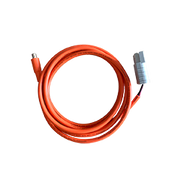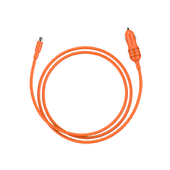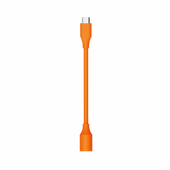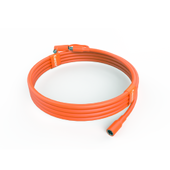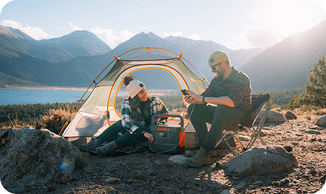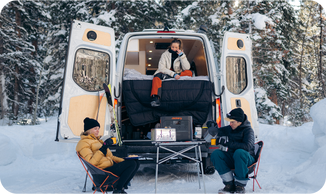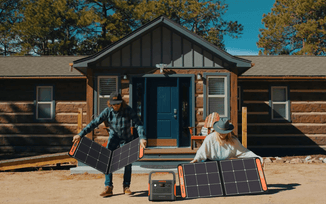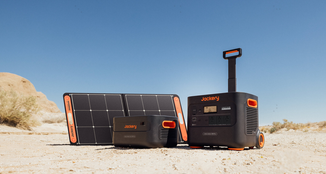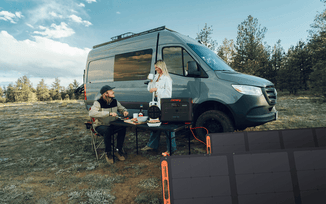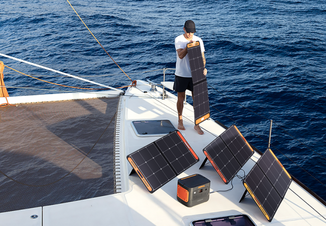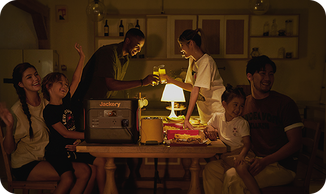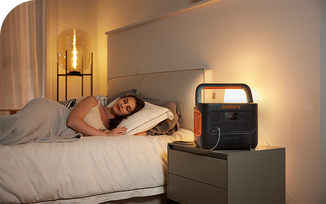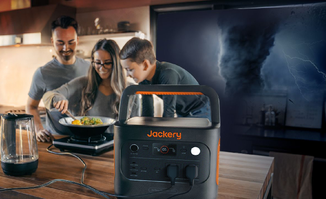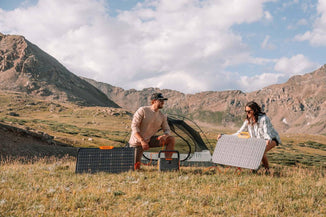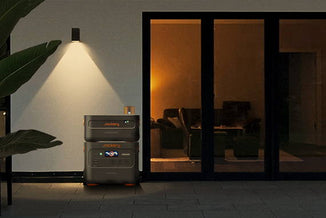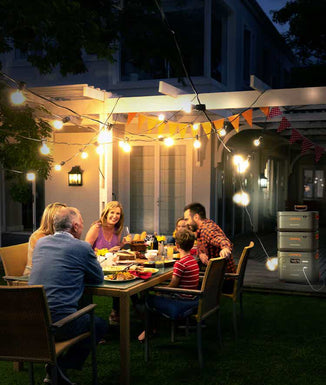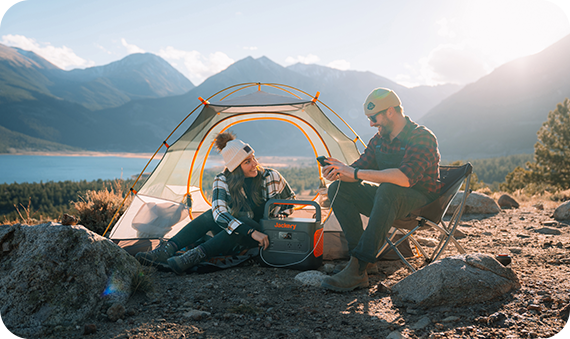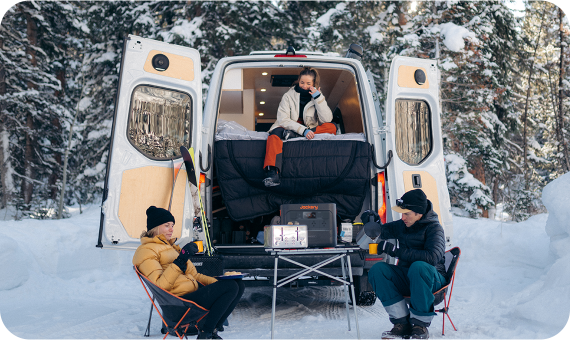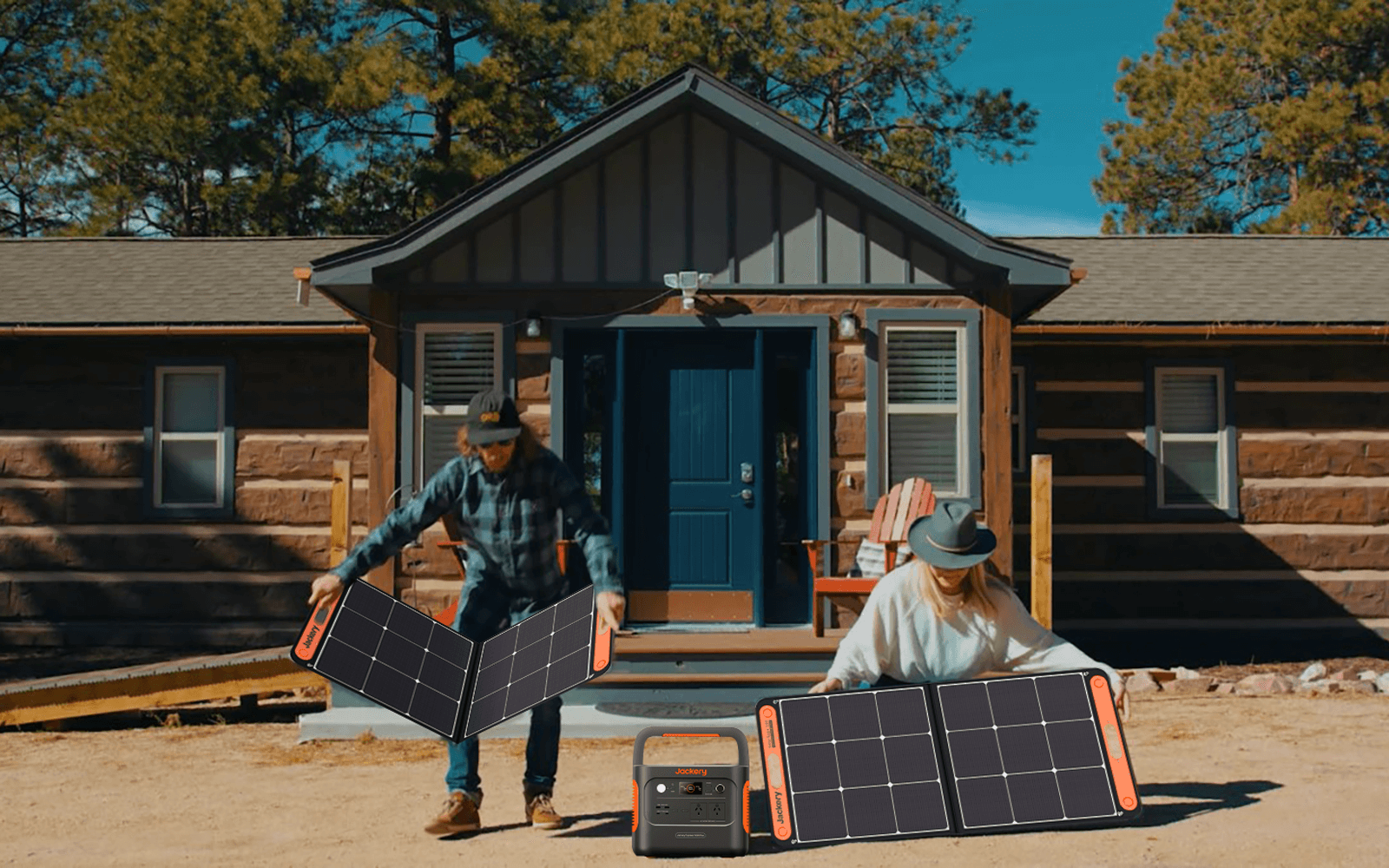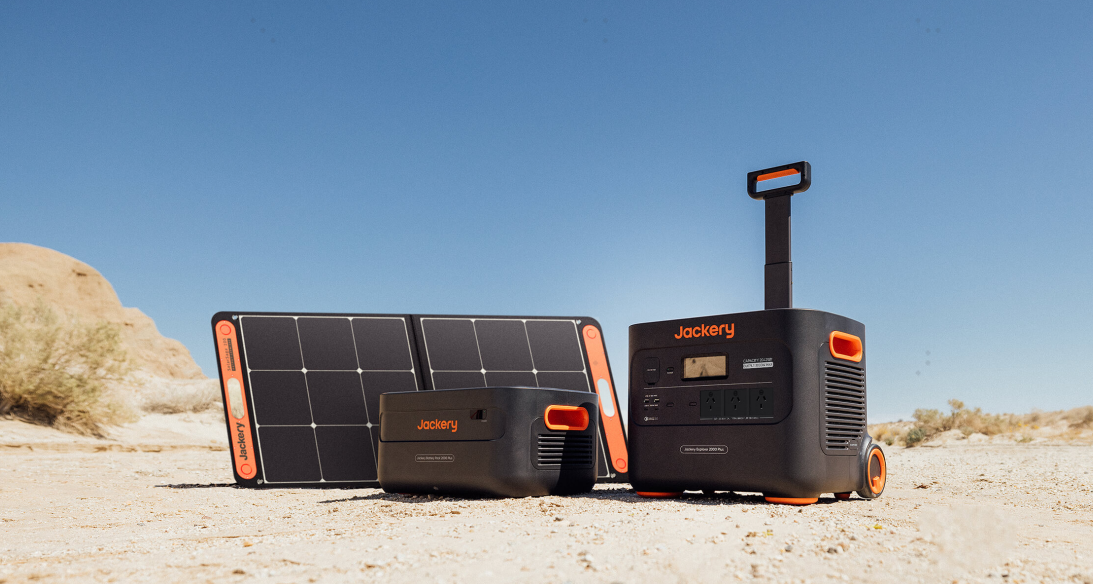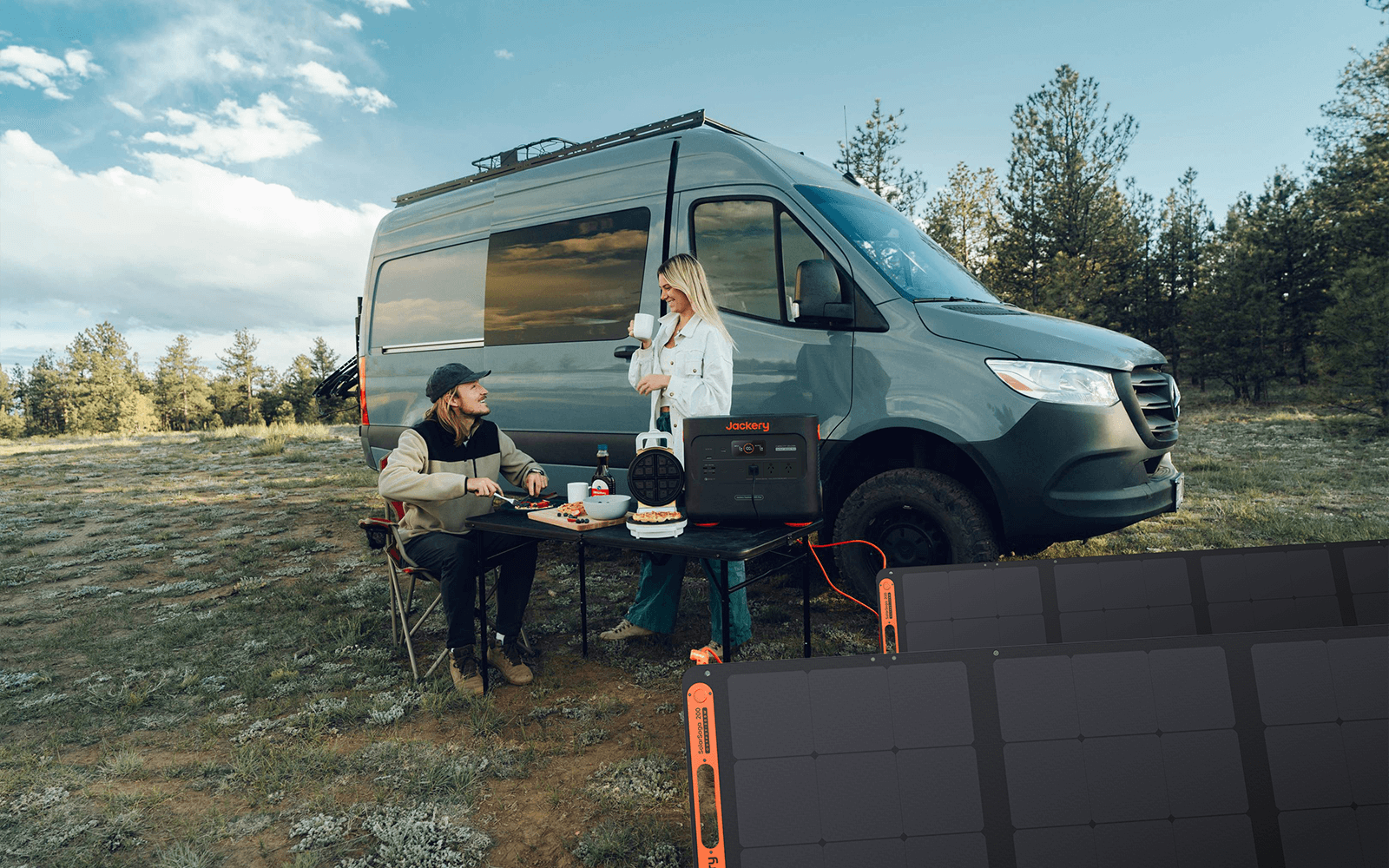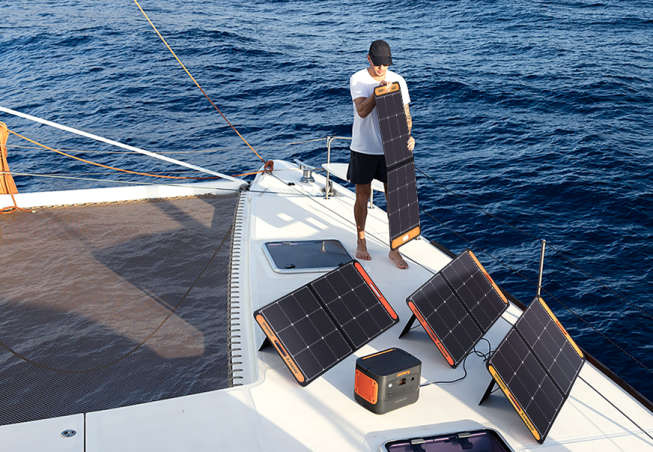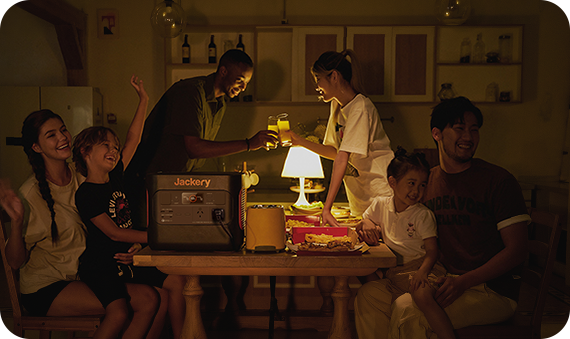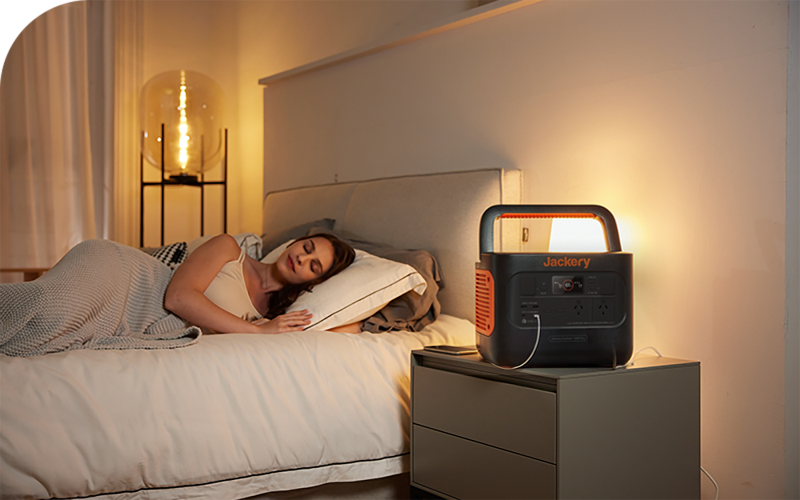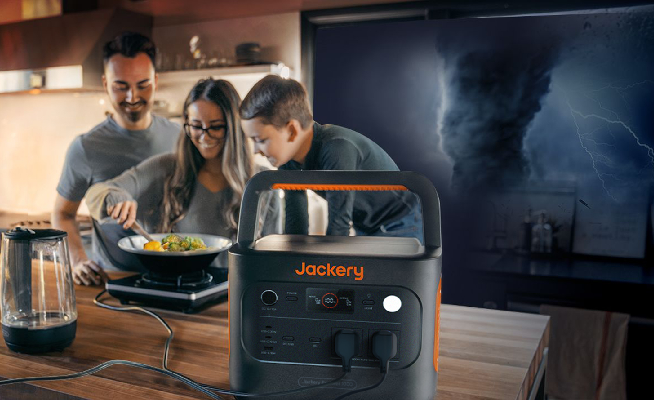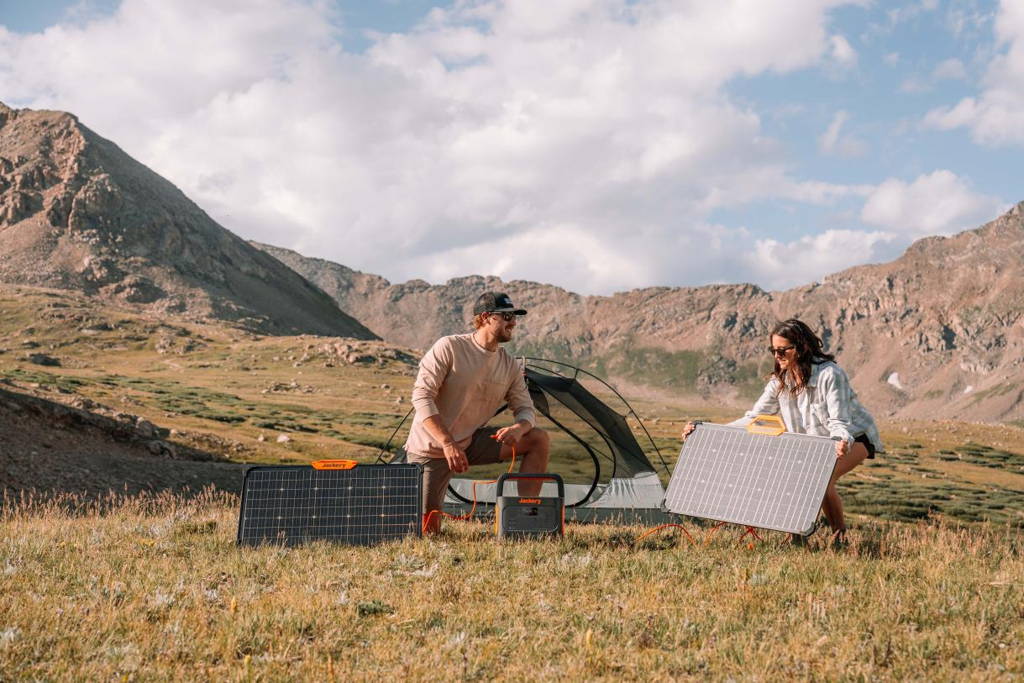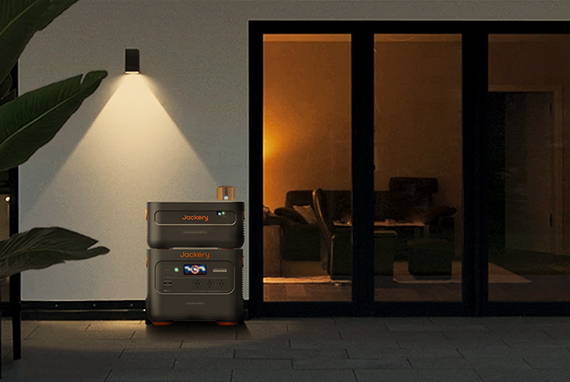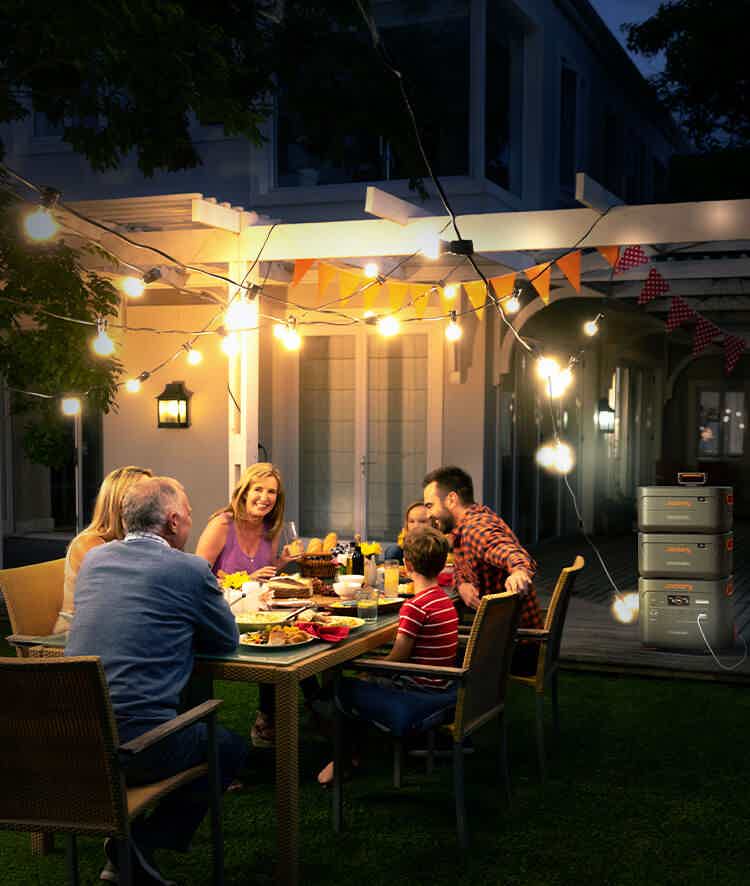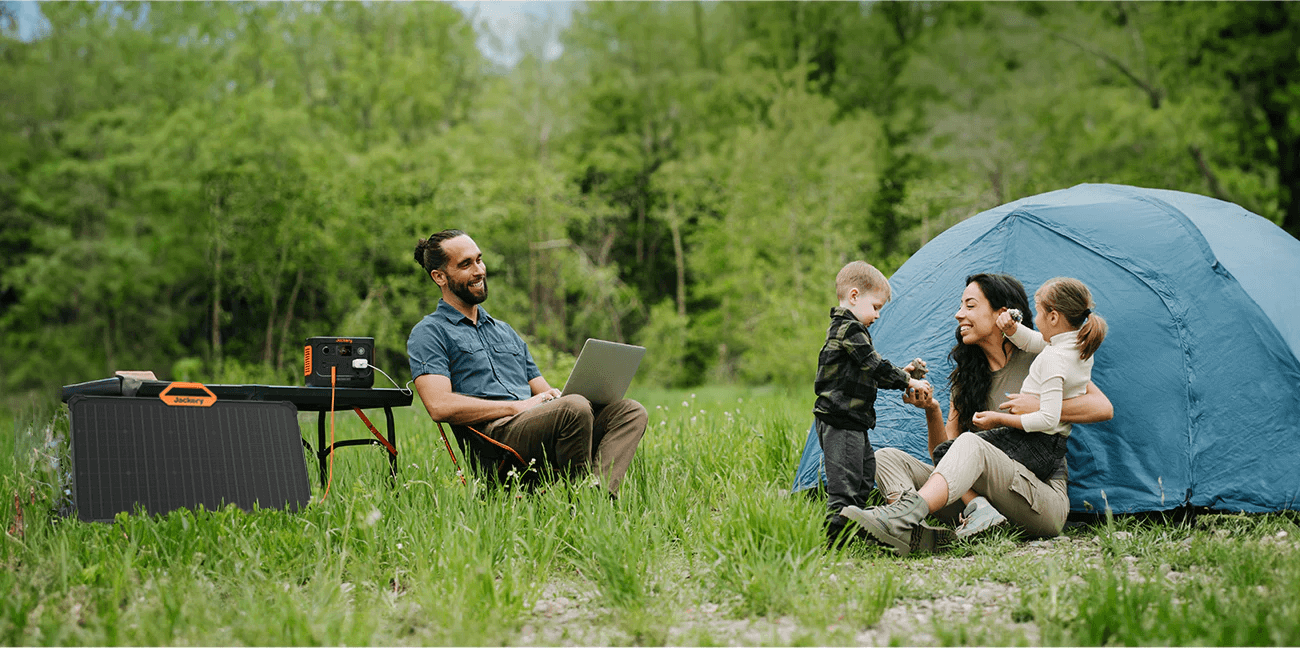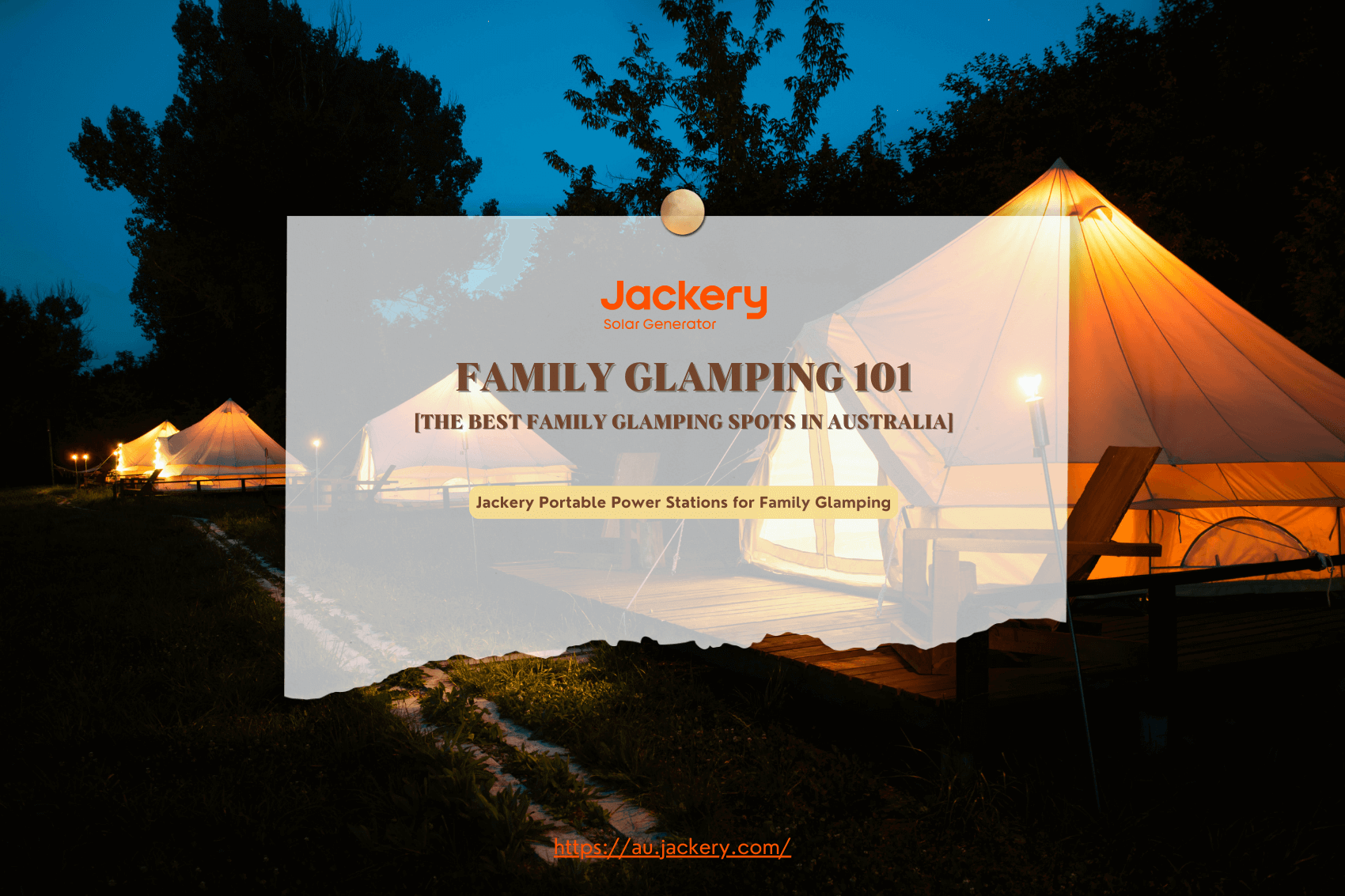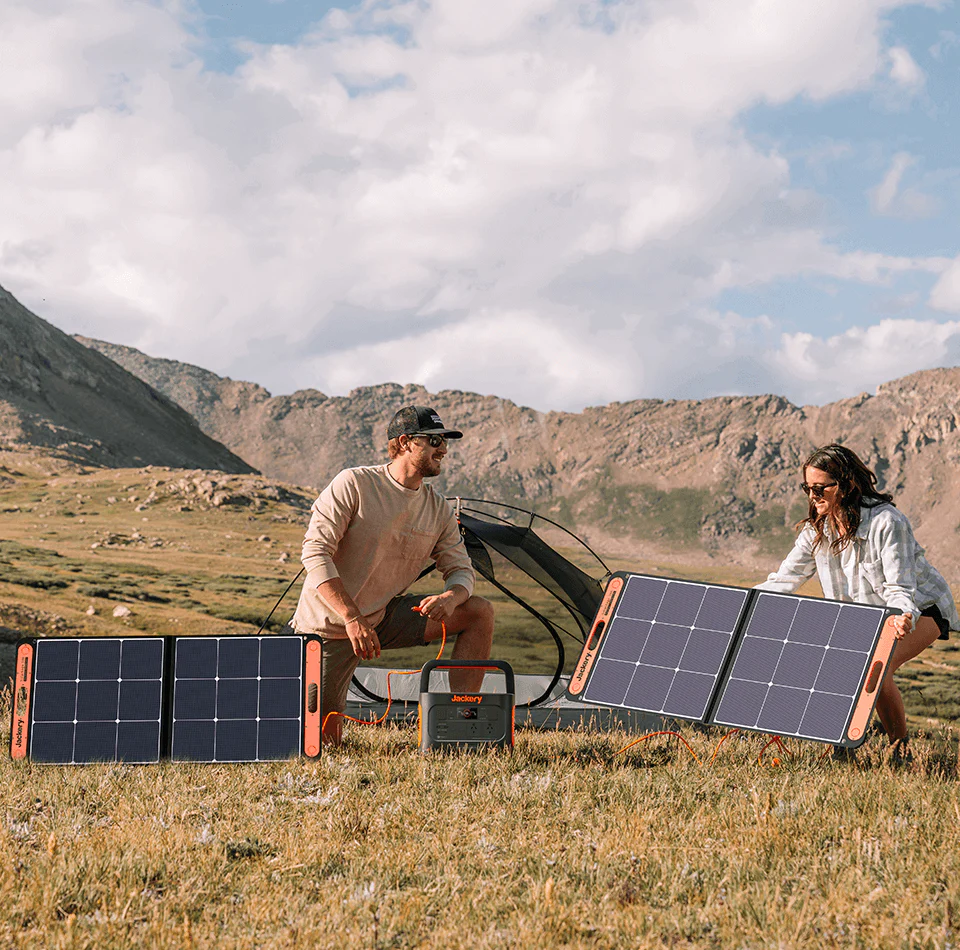Adapted to Year-round Camping - Solar Generators
Continuous Power Supply and Energy Storage
Solar generators for year-round camping in Australia provide daytime electricity and nocturnal energy storage. These generators use PV cells to turn sunlight into power with a certain efficiency. Solar panels turn sunlight into electricity stored in lithium-ion or LiFePO4 batteries throughout the day. The batteries maintain charge overnight thanks to their high energy density, cycle life, and minimal self-discharge. Contemporary charge controllers automate charging to maximize energy harvest even in fluctuating Australian sunshine conditions. Even on overcast days, energy collection is efficient for an endless power source for camping.
Environmental Benefits and Reduced Carbon Footprint
While replacing fossil fuel generators, solar generators lessen camping's carbon impact. Solar energy powers these devices, which emit no greenhouse gases. Furthermore, Australia's prominent and sunny climate helps boost solar energy utilization to amplify environmental advantages. Small generators for camping help vacationers cut pollution by replacing typical power sources. Apart from that, up-to-date battery technologies, including those employed in these small generators for camping, are recyclable and less harmful for lower environmental effects. Renewable energy sources also support Australia's carbon reduction objectives and promote sustainable leisure.
Quiet Operation and Low Maintenance Requirements
Solar small generators for camping are quiet. Traditional fuel-powered generators disrupt animals and camping spots. Yet, small generators for camping employ solid-state electronics, including inverters and charge controllers, which have no moving parts and make no noise. Due to the lack of wearable mechanical parts, they need less maintenance. Cleaning solar panels to remove dust and dirt is enough. This little upkeep is helpful in rural Australian camping areas with few repair services. Solid-state components last longer and run flawlessly for the augmented camping experience.
Portability and Ease of Use
Australian solar small generators for camping must be easy to operate. Foldable solar panels and modular battery solutions render modern solar generators lightweight and portable. They include wheels and handles for easy transport on different terrains. Without technical skills, campers may rapidly set up and use generators with plug-and-play designs and accessible interfaces. Many systems provide AC outlets, USB connections, and 12V DC outputs for multiple camping items. With this adaptability, campers can easily power lights, cook, and use electrical items.
Durable Features and Weatherproof Design
Australian solar generators for year-round camping can resist severe and variable weather. They protect against rain, dust, and extreme temperatures with sturdy construction and IP65 or higher waterproof and dustproof casings. Durability is increased with tempered glass for solar panels and ruggedized battery and electronics housings. Additionally, creative thermal management technologies avoid overheating. It assures uninterrupted performance even in the scorching Australian summer. Shock-resistant designs and reinforced frames render these small generators for camping immune to transit and outdoor operation for stable power in all situations.
How Solar Generators Address Seasonal Challenges
Spring
Due to unpredictable weather, spring backpacking in Australia is rugged for small generators for camping. Solar panels with upgraded photovoltaic cells that work well in low light are essential for this season's solar energy collecting. PERC or bifacial designs catch diffused light from both sides of the panel for better energy production on cloudy days. While perpetually altering solar panel operating points to match sunlight intensity, MPPT controllers may boost energy gathering. Weatherproofing is also important. Solar generators should have high IP certifications to survive heavy rain and dust. Australian spring is humid and damp, so corrosion-resistant materials increase durability. Flexible and portable solar panels enable campers to modify panel angles and positioning to enhance sunshine gathering throughout the day despite unpredictable weather.
Summer
Small generators for camping must manage high temperatures and exploit sunshine in the Australian summer. Due to PV cell thermal resistance, high ambient temperatures diminish solar panel efficiency. So, monocrystalline solar panels, which are more efficient in hot weather, are used. Passive cooling solutions, including raised mounting systems that enable air circulation beneath the panels, should also be used in solar generators. Heat-resistant materials and ventilated designs help further prevent internal component overheating. Solar tracking systems that automatically align panels with the sun's trajectory promote solar energy intake throughout the day due to the long daylight hours. An energy storage and distribution system with a high-capacity lithium-ion battery and a secondary gel or AGM battery can avert thermal runaway and preserve efficiency in regions like the Outback. That's where sunlight is plentiful, but temperatures soar.
Fall
Solar energy gathering for camping generators must adjust to Australia's autumn weather and shorter days. As daylight hours decrease, energy harvesting during peak sunshine is key. Due to wind patterns and autumn's lower sun availability, hybrid solar systems may provide dependable electricity. EMSs that distribute electricity based on weather predictions and energy usage patterns strengthen resource efficiency. When converting DC to AC, high-efficiency inverters with low standby power consumption decrease energy losses. LiFePO4 batteries, which are more stable, could generate power with less solar input. As the seasons change, foldable solar panels enable campers to adjust placement and orientation for exposure during limited sunny times. It helps keep small generators for camping productive throughout the autumn.
Winter
Solar generators in camping around Australia have issues in winter, including in southern locations with snowfall. Solar panels work better in lower temperatures, but snow may briefly block sunlight. Meanwhile, since frameless solar panels have no corners, snow slides off more readily. Hydrophobic panels lessen snow and ice buildup. With tilt-adjustable mounts, campers may arrange the panels at steeper angles to shed snow and improve sun exposure. Solar generators use electricity instead of liquid fuels, avoiding fuel-freezing difficulties. Lithium iron phosphate batteries retain capacity and charge rates in cold climes. In grave colds, battery enclosures with heating components prevent capacity loss. Advanced BMSs regulate charging and discharging cycles for better battery health and efficiency.

Choosing the Right Solar Generator for All-Season Camping
Power Output Considerations for Different Weather Conditions
When picking small generators for camping, remember that weather may affect power production. Australia has extreme weather, from bright to gloomy to rainy. Thus, a solar generator with high-efficiency solar panels that work well in low light is vital. Due to its efficiency, monocrystalline panels are better than polycrystalline ones. Even in changing weather, solar generators with MPPT charge controllers might optimize power production. In winter, when sunshine is less strong, power production may decrease. Consequently, a generator with multiple charging options, including solar and AC or DC input, may give a constant power supply.
Battery Capacity and Storage Space for Extended Nighttime Use
For lengthy nighttime usage, solar generator battery capacity is key. Lithium-ion batteries are suggested for increased energy density, lifetime, and temperature performance. Australian winters may lower camping temperatures and affect battery efficiency. Henceforth, choosing a battery with a built-in BMS to prevent overcharging, deep discharge, and temperature extremes is important. You might select a generator with a 1000Wh battery capacity to power lights, communication equipment, and small appliances overnight. To cope with longer stays without sacrificing power, ensure your small generators for camping have expandable batteries or accept external battery packs.
Durability and Weather Resistance in Extreme Weather
Australia's acute heat, heavy rains, and strong winds require a weatherproof solar generator. Look for small generators for camping made of anodized aluminium or reinforced plastic, which tolerate corrosion and damage. Besides that, the generator must have a high Ingress Protection classification to provide dust-tightness and water-jet protection. Reinforced corners and watertight sealing increase durability. In severe circumstances, internal components should be protected from moisture and dust to avoid short circuits and other damage. Select generators that have passed rigid temperature, humidity, and vibration tests to sustain all-season camping in Australia.
Portable and Compact Design for Easy Transportation and Storage
Vacationing requires portability, so small generators for camping are necessary. Choose a generator that fulfils your energy demands while being lightweight. Generators with retractable handles and wheels are simpler to carry over broad terrains. Compact designs that fit in vehicle trunks or other storage places are great. Integrated cable management and folding solar panels save space and ease setup on specific generators. Consider weight and size when choosing a portable solar generator. Ensure it fits your transport and storage needs without jeopardizing performance.
Compatibility and Multiple Connection Options with Camping Equipment and Appliances
Solar generators must be compatible with several camping gear and appliances. Check that the generator has AC outlets, DC carports, USB-A, and USB-C ports for synchronous device connection. The voltage and connection types of CPAP machines, portable refrigerators, and lighting systems may vary. Choose generators with pure sine wave inverters for clean, reliable power for sensitive devices. Generators with integrated adapters and connections are compatible with more devices right out of the box. Pass-through charging lets you operate the generator as it charges. It guarantees that important equipment has constant power throughout hours of use.
Ease of Use and Maintenance
Small generators for camping must be easy to operate and keep. Generators with simple interfaces and evident battery, input/output, and charging status indicators are advantageous. Users may track and supervise power use via real-time LCD or LED panels. Plug-and-play connections and pre-configured settings strengthen user experience for non-technical users. On the other hand, for maintenance, choose generators with flexible structures that render battery cells and inverters easier to repair. Cleaning solar panels occasionally and storing the generator in a cool, dry area extends its life expectancy. Consider models with built-in cooling systems or fans to stop overheating during lengthy usage. Such tips can boost your solar generator's functionality.
Jackery's Camping Compact Generators

Jackery Solar Generator 300 Plus
The Jackery Solar Generator 300 Plus provides efficient and steady electricity for all-season camping in Australia. Weighing just 4.95 kg with the SolarSaga 40W solar panel, such small generators for camping are highly portable. Its 288Wh capacity, 300W output, and 10-year LFP battery give long-term dependability. The Jackery Solar Generator 300 Plus works in -10 to 45°C temperatures, from frigid winter nights to scorching summer days. Patented ChargeShield Technology protects against different Australian weather conditions with 52 kinds of protection. Its four-way charging (solar, mains, vehicle lighter, type-C) gives distant areas flexibility. It can charge a phone 13 times, a camera 12 times, and a laptop 3 times for long camping excursions. Given Australia's varied climate, IP68-rated solar panels protect against dust and water.
Jackery Solar Generator 1000 Plus
The Jackery Solar Generator 1000 Plus is the best alternative for comparable portable power stations due to its exceptional output. It can aid in camping, off-road driving, home emergencies, and other circumstances. It is the all-in-one solar generator for your life due to its versatility and size.
Supports up to three additional battery packs, bringing the total capacity to 5kWh and providing 1-3 days of home backup power. Enjoy the outdoors while camping. A solar generator can power your phone, projector, and speakers in the great outdoors, bringing both comfort and convenience. Stay connected and keep critical devices running with reliable backup power, assuring safety and convenience in an emergency.
The Jackery Explorer 1000 Plus portable power station, with a 10-year lifespan and a Lithium Iron Phosphate (LiFePO4) battery, provides a consistent voltage and pure sine wave to ensure the safety of all your electrical gadgets. Additionally, the innovative ChargeShield technology and consistent power delivery avoid equipment damage.
Conclusion
Hence, solar generators are fundamental for unfailing power in year-round camping in Australia because they transform sunlight into uncontaminated energy using high-efficiency photovoltaic panels and lithium-ion battery storage. Accordingly, they offer a sustainable power source that is unaffected by remote locations. Along these lines, we recommend our Jackery small generators, an efficient portable power bank for camping and unremitting power for indispensable devices.

